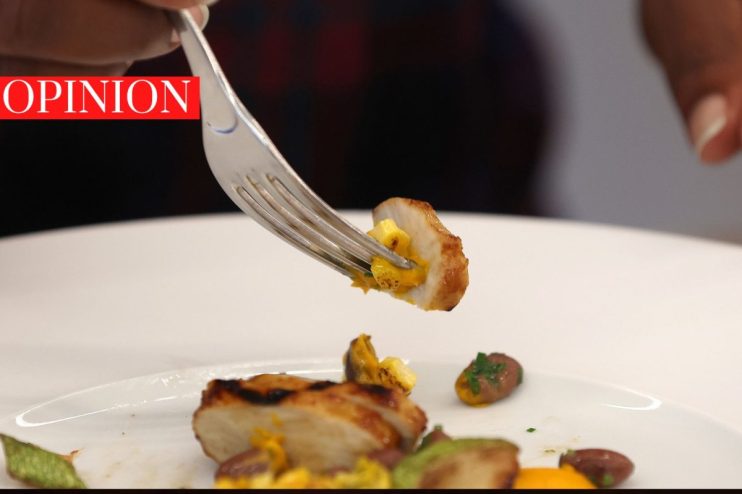Say bye to fake burgers: lab-grown meat will be the rising star of the food revolution

The real deal with meat alternatives will be lab-grown meat. It could change the rules of the food game once it enters the UK market, writes Phoebe Arslanagic-Wakefield
One evening last week, I watched a friend tuck into a sirloin steak. It looked delicious, if a little overdone, but I knew there was much more to it than met the eye. While the chips and peppercorn sauce it came with were real, the steak itself was a fake. What my friend was actually eating was a 3D-printed steak, made of soy, wheat, rapeseed oil, beetroot, and coconut fat.
The creators of this savoury sleight of hand are Redefine Meat, an Israeli company founded in 2018 that aims to provide consumers with “the full sensory experience of meat” without any moral compromise. Redefine Meat attribute the lifelike quality of their products to time spent investigating the muscular structure of animal meat so that it can be reproduced through 3D printing. I can attest to the unnerving textural similarity of one of their meat cubes that I ate earlier this year. Though it’s been nearly a decade since I stopped eating meat, if I had discovered this fleshy object in my food anywhere else, I would have spat it out indignantly.
My carnivore friend – a man I suspect of travelling to Scotland purely so he can get his favourite pulled pork buns from an Edinburgh takeaway named Oink – demolished his fake steak and declared he would be only too happy to eat it again. You can try it yourself at Unity Diner if you’re interested.
But despite glowing endorsements such as these, the future of fake meat products in the UK looks murky. Last month Beyond Meat, makers of the best vegan burger patty you can get in my opinion, revised their annual forecast down following a 30 per cent drop in revenues in the second quarter of this year. Earlier this year, another firm called Meatless Farm had to be rescued from administration as its meat substitute product lines were withdrawn from supermarkets.
Various credible explanations have been put forward for these difficulties, from the cost-of-living crisis to a move away from processed foods to an overestimation by businesses of the size of the vegan market in the UK. Whatever the reason behind the British public’s increasing disinterest in these products, and despite Redefine Meat’s spookily good steaks, the innovators who might actually transform our diet will use cellular agriculture, not 3D printers to do so.
The first lab-grown burger, made directly from animal cells, was created in 2013. Because of challenges with producing commercial quantities, such products are yet to hit shelves more widely. With companies experimenting by combining different animal cells, the potential range of creations is vast.
What if you could buy meat that tastes like beef but had the nutritional profile of oily fish? Or eat a lab-grown steak as good as any cut of Wagyu? Imagination is the limit: in March of this year, a gigantic meatball was unveiled in front of the press in Amsterdam’s science museum. What was so special about this meatball? It was made of lab-grown woolly mammoth cells. Disappointingly, nobody was allowed to eat it because of killjoy concerns over how the human immune system might react to a protein not consumed by us for millennia.
The relationship between the consumption of animal foods, especially meat and dairy, and greenhouse emissions is crystal clear. By contrast, the world’s most sustainable foods are things like pulses, mushrooms, oats, and seaweed. But even a self-righteous vegan like me struggles to envision a world in which meat-eating friends snub pulled pork buns in favour of a chickpea and portobello porridge. If lab grown meat can lead us away from environmentally harmful and questionable dietary practices better than fake meat can, then I’m all for it.
